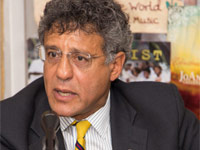 Fiscal consolidation, education and citizen security and justice are just some areas the Christie administration is looking to bolster through loans at the Inter-American Development Bank (IDB).
Fiscal consolidation, education and citizen security and justice are just some areas the Christie administration is looking to bolster through loans at the Inter-American Development Bank (IDB).
Astrid Wynter, IDB representative to The Bahamas confirmed to Guardian Business that it’s still too early to set a cap on what The Bahamas can borrow.
She noted that during the four-year period of 2010-2014, the IDB had implemented a borrowing ceiling of $191 million, but emphasized that there are several factors to consider when determining how much the IDB will lend.
At this point, Wynter pointed out that the bank is still very much in the preliminary discussions phase with the government for additional loans.
“We are very preliminary in our discussions with the government as to what their priority areas are. At this point, we don’t have a set envelope. As part of the country’s strategy, we at IDB have to agree with the country over the next four to five years what the priorities are going to be. Then the size of the envelope is determined,” according to Wynter.
“We are just at the point where we are doing the overview and have had preliminary talks with the government about what their priority areas are.
“For example, we don’t have a quota system. Countries are on various cycles as well, so there isn’t a set figure point. We look at the kinds of investments that are being requested and then we can say that this is the provisional envelope for the four to five year period.”
This comes after the government signed two separate loans with the IDB yesterday at the Office of the Prime Minister, one tagged at $16.5 million for a trade sector support program and $7.5 million social safety net program.
In July, the IDB approved the loan to modernize the country’s customs department and bolster revenue by tens of millions each year.
“Although The Bahamas is a vibrant economy, the country is somewhat isolated from international trade circles,” said Mario Umana, IDB tem leader for the project.
“As a result of the changes and the technical support to be implemented under the program, The Bahamas will have modern and agile customs operations, and the country will be in a better position to join the World Trade Organization.”
In most cases when it comes to granting loans, Wynter shared with Guardian Business that it depends on the country’s individual needs and its budget. She used yesterday’s signing of the $16.5 million trade sector support loan as an example.
“In this case, The Bahamas needs to have a modern customs system that complies with the highest international standards that allows you to be competitive in international markets and allows you to diversify your economy and produce more jobs for Bahamians,” she explained.
“We start from that angle and then we look at how much will it cost and how much does the country need in terms of its budget and fiscal situation. It’s a dialogue because you can do an intervention for let’s say $10 million in customs modernization, or you can do a $100 million. We are very respectful of the countries who are our clients. We will never come in and tell them what to do.”
The fate of a $65 million loan from the IDB to support New Providence’s controversial roadworks project is expected to be decided early next week.
Scieska Adderley
The Freeport News



